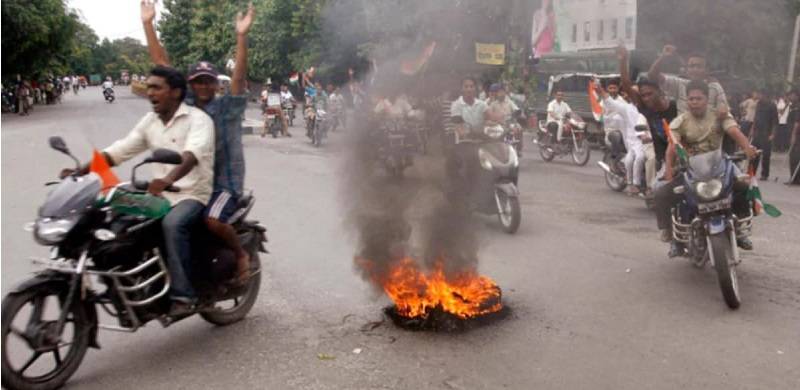
Our ancient thinkers were of the view that the worst state of affairs possible in society is a state of lawlessness. When the rule of law collapses, it is replaced by matsyanyaya, which means the law of the jungle. In Sanskrit the word 'matsya' means fish, and matsyanyaya means the state of affairs when the big fish devours the smaller one. All our ancient thinkers have condemned matsyanyaya (see History of the Dharmashastras by P.V. Kane, Volume 3 page 21).
This idea of matsyanyaya (the maxim of the larger fish devouring the smaller ones or the strong despoiling the weak) was frequently dwelt upon by Kautilya, the Mahabharata and other works. It can be traced back to the Shatapath Brahman (Chapter 11,1.6.24) where it is said “Whenever there is drought then the stronger seizes upon the weaker, for the waters are the law,” which probably means that when there is no rain the reign of law comes to an end, and matsyanyaya begins to operate.
Kautilya says “If danda be not employed, it gives rise to the condition of matsyanyaya, for in the absence of a chastiser the strong devour the weak.” That in the absence of a king (arajaka) or when there is no fear of punishment the condition of matsyanyaya follows has been declared by several works e.g. Ramayana( Chapter 67), Shantiparva of Mahabharata (15.30 and 67.16), Kamandaka (Chapter 40), Matsyapurana (225.9), Manasollasa (2.20.1295), etc.
Thus in the Shantiparva of Mahabharata it is stated:
“Raja chenna bhavelloke prithivyaam dandadharaka
Shule Matsyanivapakshyun durbalaat balvattarah"
which means:
“When the king carrying the rod of punishment does not protect the earth, then the strong persons destroy the weaker ones, just like in water the big fish eat the smaller ones.”
In the Shantiparva of Mahabharata, Bheeshma Pitamah tells Yudhishthir that there is nothing worse in the world than lawlessness, for in a state of matsyanyaya nobody – not even the evil doers – are safe. Even the evil doers will sooner or later be swallowed up by other evil doers.
The violence in West Bengal after the recent elections shows that Matsya Nyaya is coming in India, and its first step has been taken in West Bengal.
This idea of matsyanyaya (the maxim of the larger fish devouring the smaller ones or the strong despoiling the weak) was frequently dwelt upon by Kautilya, the Mahabharata and other works. It can be traced back to the Shatapath Brahman (Chapter 11,1.6.24) where it is said “Whenever there is drought then the stronger seizes upon the weaker, for the waters are the law,” which probably means that when there is no rain the reign of law comes to an end, and matsyanyaya begins to operate.
Kautilya says “If danda be not employed, it gives rise to the condition of matsyanyaya, for in the absence of a chastiser the strong devour the weak.” That in the absence of a king (arajaka) or when there is no fear of punishment the condition of matsyanyaya follows has been declared by several works e.g. Ramayana( Chapter 67), Shantiparva of Mahabharata (15.30 and 67.16), Kamandaka (Chapter 40), Matsyapurana (225.9), Manasollasa (2.20.1295), etc.
Thus in the Shantiparva of Mahabharata it is stated:
“Raja chenna bhavelloke prithivyaam dandadharaka
Shule Matsyanivapakshyun durbalaat balvattarah"
which means:
“When the king carrying the rod of punishment does not protect the earth, then the strong persons destroy the weaker ones, just like in water the big fish eat the smaller ones.”
In the Shantiparva of Mahabharata, Bheeshma Pitamah tells Yudhishthir that there is nothing worse in the world than lawlessness, for in a state of matsyanyaya nobody – not even the evil doers – are safe. Even the evil doers will sooner or later be swallowed up by other evil doers.
The violence in West Bengal after the recent elections shows that Matsya Nyaya is coming in India, and its first step has been taken in West Bengal.
